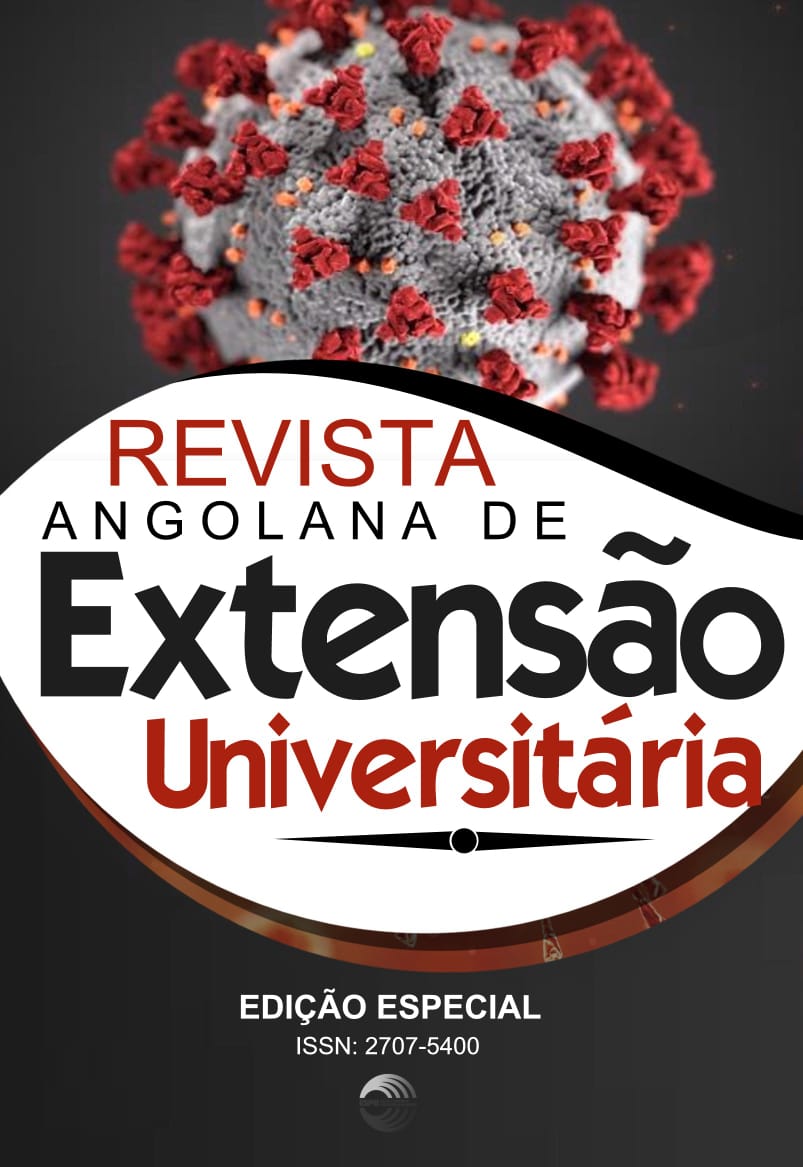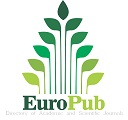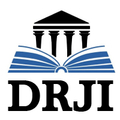Uma Análise SWOT dos Desafios da Educação nos Países da África Subsahariana Ante o COVID-19
Resumo
Este artigo tem como objectivo levar a cabo uma análise dos desafios impostos aos países da África Subsahariana pela pandemia. Realizou-se uma pesquisa exploratória, com recurso à matriz SWOT (Strengths, Weakenesses, Opportunities, Threats), ressaltando as Fraquezas, Fortalezas, Ameaças e Oportunidades, no contexto dos países em desenvolvimento como Angola. Concluiu-se que os países da África Subsahariana, por terem lidado, nos últimos tempos, com diversas epidemias, como a Cólera, Marburg e outras, podem ter adquirido uma experiência que lhes permite dar uma resposta diferenciada ao combate à COVID-19, sendo, portanto, maior problema, a manutenção das medidas e sua sustentabilidade a médio e longo prazo. De igual modo, os problemas preexistentes, tais como: analfabetismo, pobreza, falta de água potável, habitabilidade precária e saneamento básico inadequado, precisam de ser resolvidos, uma vez que podem comprometer as medidas preconizadas para a contenção da pandemia.
Downloads
Referências
Africa CDC. (2020). Our mission. Disponível em https://africacdc.org/about-us/our-mission. Acessado em 10 de Abril de 2020.
Agarwal, R.; Grassl, W. & Pahl, J. (2012). Meta-SWOT: introducing a new strategic planning tool. Journal of Business Strategy, v33 n. 2 pp. 12-21
Bender, L. (2020). Mensagens e ações importantes para a COVID-19 Prevenção e controle em escolas. Disponível em https://iris.paho.org/bitstream/handle/10665.2/51955/ OPASBRACOVID1920015_por.pdf?sequence=1&isAllowed=y. Acessado em 12 de Abril de 2020.
Bernard Stoecklin, S., Rolland, P., Silue, Y., Mailles, A., Campese, C., Simondon, A. (2020). First cases of coronavirus disease 2019 (COVID-19) in France: Surveillance, investigations and control measures, January 2020. Eurosurveillance, 25(6).
Bitler, M. P., & Seifoddini, A. (2019). Health impacts of food assistance: Evidence from the United States. Annual Review of Resource Economics, 11(1), 261–287.
Brooks, G.; Heffner, A. & Henderson, D. (2014). A SWOT Analysis Of Competitive Knowledge From Social Media For A Small Start-Up Business Review of Business Information System, v18, n1.
Cantillon, B., Chzhen, Y., Handa, S., & Nolan, B. (2017). Children of austerity. Impact of the great recession on child poverty in rich countries. Disponível em https://www.unicefirc.org/publications/pdf/Children_of_austerity.pdf. Acessado em 14 de Abril de 2020.
Carter, C., ThiLanAnh, N., & Notter, J. (2020). COVID-19 Disease: Perspectives in low and middle-income countries. Clinics in Integrated Care, 1(2), 1-9.
Cascella, M., Rajnik, M., Cuomo, A., Dulebohn, S. C., & Di Napoli, R. (2020). Features, Evaluation and Treatment Coronavirus (COVID-19). Disponível em: https://www.ncbi.nlm.nih.gov/books/NBK554776/. Acessado em 16 de Abril de 2020.
Center for Systems Science and Engineering. (2020). COVID-19 Dashboard by the Center for Systems Science and Engineering (CSSE) at Johns Hopkins University (JHU). Disponível em https://gisanddata.maps.arcgis.com/apps/opsdashboard/index.html#/bda7594740fd40299423467b48e9ecf6. Acessado em 14 de Abril de 2020.
Chen, J. (2020). Pathogenicity and transmissibility of 2019-nCoV-A quick overview and comparison with other emerging viruses. Microbes and Infection, 22(2), 69–71.
Cohen, J., & Kupferschmidt, K. (2020). Countries test tactics in ‘war’ again st COVID-19. Science, 367(6484), 1287–88.
Decreto Presidencial n.º 97/20 de 9 Abril. (2020). Prorroga o estado de emergência por um período de 15 dias. Diário da República, I Série, Nº 46, 2468-2475.
Decreto Presidencial nº 81/20 de 25 de Março. Declara o estado de emergência. Diário da República, I Série, Nº 35, 2290-2292.
Ferguson, N., Laydon, D., Nedjati Gilani, G., Imai, N., Ainslie, K., Baguelin, M.,Ghani, A. (2020). Impact of non-pharmaceutical interventions (NPIs) to reduce COVID19 mortality and healthcare demand. Imperial College London .
Gilbert, M., Pullano, G., Pinotti, F., Valdano, E., Poletto, C., Boëlle, P., Colizza, V. (2020). Preparedness and vulnerability of African countries against importations of COVI-19: A modelling study. The Lancet, 395(10227), 871–77.
Guio, A. C., Gordon, D., Marlier, E., Najera, H., & Pomati , M. (2018). Towards an EU measure of child deprivation. Child Indicators Research, 11(3), 835–860.
Harrison, Jeffrey P. (2010). Essentials of Strategic Planning in Healthcare. Health Administration Press.
Human Rights Watch. (2020). COVID-19 and Children’s Rights. Disponível em https://reliefweb.int/sites/reliefweb.int/files/resources/COVID-19%20and%20Children%E2%80%99s%20Rights.pdf. Acessado em 12 de Abril de 2020.
Kapata, N., Ihekweazu, C., Ntoumi, F., Raji, T., Chanda-Kapata, P., Mwaba, P., Zumla, A. (2020). Is Africa prepared for tackling the COVID-19 (SARS-CoV-2) epidemic. Lessons from past outbreaks, ongoing pan-African public health efforts, and implications for the future. International Journal of Infectious Diseases, 93, 233–236.
Karppi, I.; Kokkonen, M. & Lähteenmäki-Smith, K. (2001). SWOT-analysis as a basis for regional strategies. Suécia: Nordregio - the Nordic Centre for Spatial Development. Disponível em: www.nordregio.se. acessado em 23 de Junho de 2020.
Kock, R. A., Karesh, W. B., Veas, F., Velavan, T. P., Simons, D., Mboera , L. G., Zumla, A. (2020). 2019-nCoV in context: Lessons learned? Lancet Planetary Health, 4(3), e87-e88.
Lin, M., Beliavsky, A., Katz, K., Powis, J. E., Ng, W., & Williams, V. (2020). What can early Canadian experience screening for COVID-19 teach us about how to prepare for a pandemic? Canadian Medical Association Journal, 192(12), E314–E318.
Maoujoud, O., & Ahid, S. (no prelo). The COVID-19 pandemic in Africa: What can we expect? Value in Health Regional Issues.
Ministério do Ensino Superior Ciência e Tecnologia e Inovação. (2020). Decreto Executivo n.º 2/20 de 19 de Março.
Nguengwe, J. L. (2018). Desigualdades sociais e insucesso escolar: o caso de alunos de uma escola do ensino secundário na Humpata - Huíla Angola (Dissertação de Mestrado). ISCTE-Instituto Universitário de Lisboa, Lisboa.
Oliveira, M. (2020, Abril 11). O impacto da COVID-19 na perspectiva digital. Jornal de Angola, p. 13.
PANDORA-ID NET. (2020). PANDORA-ID-NET: Pan-African Network for rapid research and response and preparedness for infectious diseases epidemics. Disponível em: https://www.pandora-id.net/. Acessado em 13 de Abril de 2020.
Peeri, N. C., Shrestha, N., Rahman, M. S., Zaki, R., Tan, Z., & Haque, U. (2020). The SARS, MERS and novel coronavirus (COVID-19) epidemics, the newest and biggest global health threats: What lessons have we learned? International Journal of Epidemiology, 0(0), 1-10.
Petenate, M. (2018). Análise SWOT: significado, como fazer e exemplos práticos. Disponível em https://www.escolaedti.com.br/analise-swot. Acessado em 14 de Abril de 2020.
Pickton, D. W. & Sheila Wright. (1998). Strategic Change Strat. What's swot in strategic analysis?
Sammut-Bonnici, T. & Galea, D. (2014). Wiley Encyclopedia of Management. SWOT Analysis. Strategic Management, v. 12.
Schwartz, A. E., & Rothbart, M. W. (2019). Let them eat lunch: The impact of universal free meals on student performance. Journal of Policy Analysis and Management. 39(2), 376-410.
The Lancet Child & Adolescent Health. (2020). Pandemic school closures: risks and opportunities. The Lancet Child & Adolescent Health. 4(5), 341.
UNESCO. (2020). Universities tackle the impact of COVID-19 on disadvantaged students. Disponível em https://en.unesco.org/news/universities-tackle-impact-COVID-19-disadvantaged-students. Acessado em 12 de Abril de 2020.
Van Lancker, W., & Parolin, Z. (2020). COVID-19, school closures, and child poverty: A social crisis in the making. The Lancet Public Health. 5(5), e243-e244.
Viner, R. M., Russell, S. J., Croker, H., Packer, J., Ward, J., C., Booy, R. (2020). Closure and management practices during coronavirus outbreaks including COVID-19: a rapid systematic review. The Lancet Child & Adolescent Health. 4(5), 397-404.
Wang, Y., Chen, Y., & Qin, Q. (2020). Unique epidemiological and clinical features of the emerging 2019 novel coronavirus pneumonia (COVID-19) implicate special control measures. Journal of Medical Virology. 92(6), 568-576.
WHO. (2020a). Coronavirus disease (COVID-19) outbreak. Disponível em https://www.who.int/emergencies/diseases/novel-coronavirus-2019. Acessado em 12 de Abril de 2020.
WHO. (2020b). Ebola outbreak 2014-2016. Disponível em https://www.who.int/csr/disease/ebola/en/. Acessado em 12 de Abril de 2020.
World Bank. (2020). World Development Report 2020: Trading for development in the age of global value chains. Washington, DC: World Bank Group.
Yu, F., Du, L., Ojcius, D. M., Pan, C., & Jiang, S. (2020). Measures for diagnosing and treating infections by a novel coronavirus responsible for a pneumonia outbreak originating in Wuhan, China. Microbes and Infection, 22(2), 74–79.
Direitos de Autor (c) 2020 Revista Angolana de Extensão Universitária

This work is licensed under a Creative Commons Attribution-NonCommercial 4.0 International License.
Ao submeter o manuscrito o autor está ciente de que os direitos de autor passam para a Revista angolana de extensão universitária













